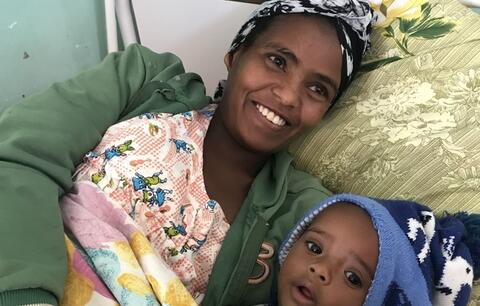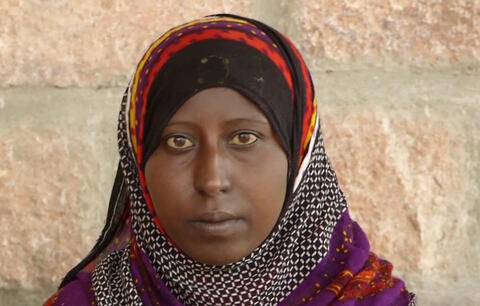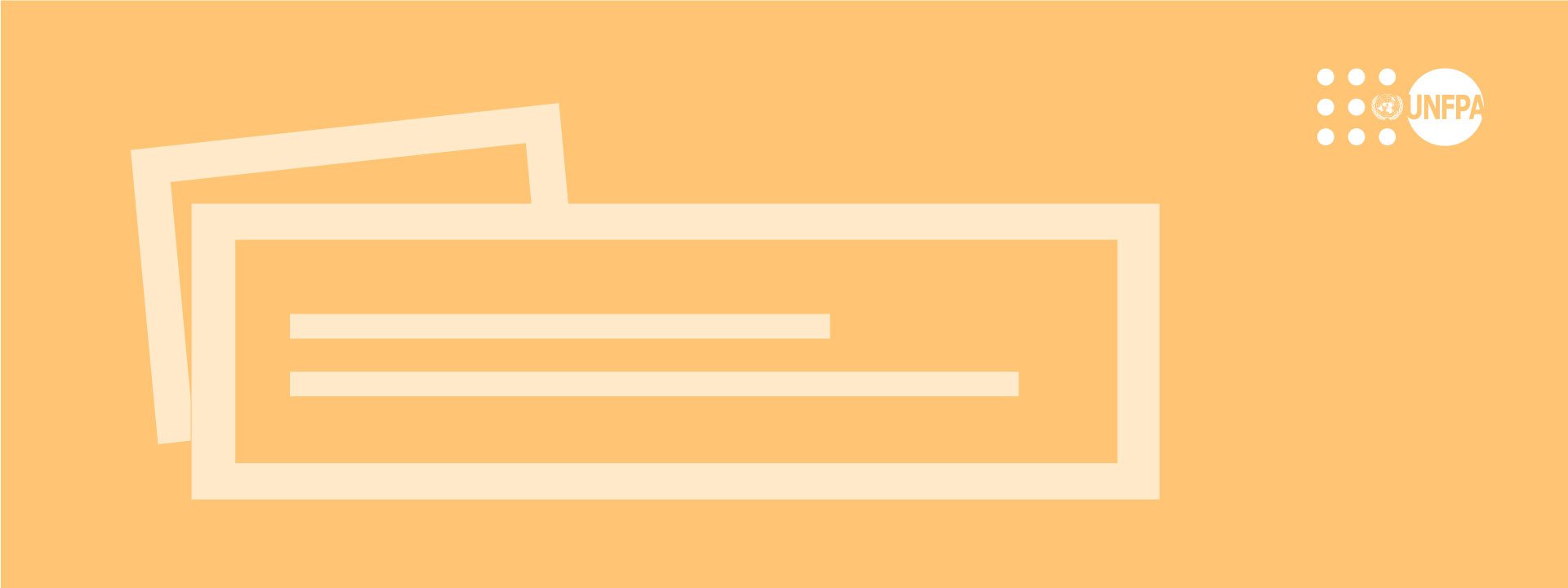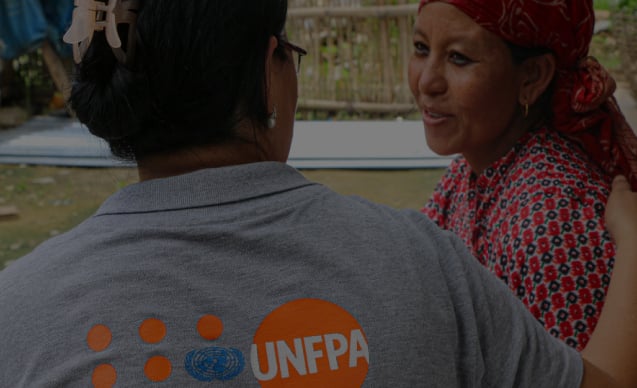UNFPA in Eritrea
UNFPA is the lead United Nations agency for delivering a world where every pregnancy is wanted; every childbirth is safe, and every young person’s potential is fulfilled.
The United Nations Population Fund (UNFPA) has had an established presence in Eritrea since 1993. During the past 26 years, UNFPA has supported the Government’s goals to ensure that women and young people increasingly have access to quality reproductive health services throughout the country – with rural areas as a priority to reach the most underserved populations.

What we do
In Eritrea, UNFPA works to reduce maternal mortality and morbidity, underage marriage and eliminate female genital mutilation (FGM). We partner with the Ministry of Health to strengthen the national health system, particularly to improve access for rural populations and to support local communities to build maternity waiting homes linked to health facilities. UNFPA also supports the National Fistula Center at Mendefera as well as providing technical assistance and supplies to the Ministry of Health.
We work with the National Union of Eritrean Women to advance understanding of women and girls’ rights, eliminate violence against women and harmful practices, including to support the implementation of laws banning underage marriage and FGM. UNFPA supports Youth Friendly Centers in Eritrea. We partner with the National Union of Eritrean Youth to support access to life skills training, including awareness-raising on sexual and reproductive health; we also support condom distribution, train on proper use and effective disposal.
As part of the United Nations family, UNFPA also partners with other UN agencies such as UNICEF to implement the global project to reduce underage marriage (UAM) and ending Female Genital Mutilation (FGM). In response to the urgency to achieve the Sustainable Development Goals by the 2030 deadline – particularly related to achieving Goal 3.1 Reducing Maternal Mortality - UNFPA is working closely with UN agencies to mainstream health management and to integrate access to information and services on sexual and reproductive health into existing programs across the country.
Reducing maternal and neonatal mortality
With an estimated population of 3.49 million people, Eritrea was one of the few countries on the African continent to achieve the Millenium Development Goal of reducing maternal mortality by 45%. Ever championing the concept of social justice, the Eritrean Government has made access to quality health care and reproductive health services a priority even throughout the 30 years of the liberation struggle and the following border war with Ethiopia. Today, Eritrea aims to achieve the Sustainable Development Goal of reducing the maternal mortality rate further by the 2030 deadline from 501 deaths to the global goal of 70 per 100,000. One way to do this is to increase access to maternity waiting homes (MWH) at the health facilities, allowing women and girls from remote areas to have a place to stay pending their delivery. To date, with the support of UNFPA, 41 communities across five zobas (provinces) and 21 sub-zobas have come together to build MWH. Women and girls using these facilities have access to both professional reproductive health care and improved nutrition, and as a result the MWH clearly have life-saving implications for many of the beneficiaries. At the same time, working with the Ministry of Health, UNFPA has strengthened the system of Emergency Obsteric Care (EmoC) through the provision of essential medicines, supplies and equipment. This has not gone unnoticed by the population and delivery rates at health facilities have increased from 6% in 1991 to 67% in 2017.
Consolidating gains made to address HIV/Aids
Self-reliance and resilience is celebrated in Eritrea. Having been forced to make do with very little, the Eritrean population has learned that great things can be achieved through focused efforts. Evidence of this can be seen in how the country has addressed the HIV/AIDs epidemic reducing the prevalence rate to below 0.47% and virtually eliminating mother-to-child transmission of the virus. These gains need to be sustained even as the country opens to greater regional integration following the Peace Agreement with Ethiopia in 2018.

Protecting women and girls from harmful traditional practices
Eritrea has enacted laws against female genital mutilation and underage marriage. It has taken significant steps to both mitigate the risk of fistula among pregnant women as well as dedicating a hospital and training medical professionals to conduct the oftentimes highly complicated fistula repairs. Where access to emergency obstetric care is limited, especially in combination with underage marriage, the risks of protracted labor for both the mother and child multiply. Despite sustained efforts by government and partners, social norms are not changed overnight, so while underage marriage is outlawed, in the more remote areas the practice (and therefore the risks for underage girls) continues. To counter the risks, young doctors are now also required to be able to conduct emergency caesarian sections as part of their regular certification. Being able to perform this procedure can be life-saving and also eliminate the causes of fistula. To date more than 1700 fistula repairs have been successfully conducted with UNFPA support.
Data for Development
UNFPA in Eritrea has provided capacity-building support to the National Statistics Office, most recently also supporting the country’s efforts to address civil registration and to conduct the next demographic health survey.
Women’s and Girls’ Empowerment
UNFPA partners with the National Union of Eritrean Women and the National Union of Eritrea Youth and Students to conduct community-level awareness raising on issues ranging from girls’ empowerment to unpacking social norms to ensure that boys and girls have equal access to education, and removing barriers to girls’ entry into school and later, the formal labor market.
Some flagship communities have responded by to implement the ban on underage marriage as well as ending the practice of female genital mutilation (FGM) after gaining a solid understanding of the benefits of delaying marriage until both parties have finished their education. With greater support, more progress can be achieved in this important area.
Climate Change Resilience
The impact of climate change has shown to adversely affect the health and wellbeing of mothers and their newborns. Uneven harvests and lack of access to proper nutrition in the Horn of Africa region in the has affected some parts of the population leading to anemia and complications during labor, and at times loss of lives of both mother and child. Increasingly, UNFPA is also collaborating with academic institutions that have pointed to the risks of rising temperatures to the lives of the mother and fetus, making it more urgent to partner with non-traditional institutions working on environmental issues and agriculture to ensure that awareness-raising about reproductive health (particularly of women and girls) is a message that is communicated beyond medical circles and becomes an integrated approach across the United Nations system.




